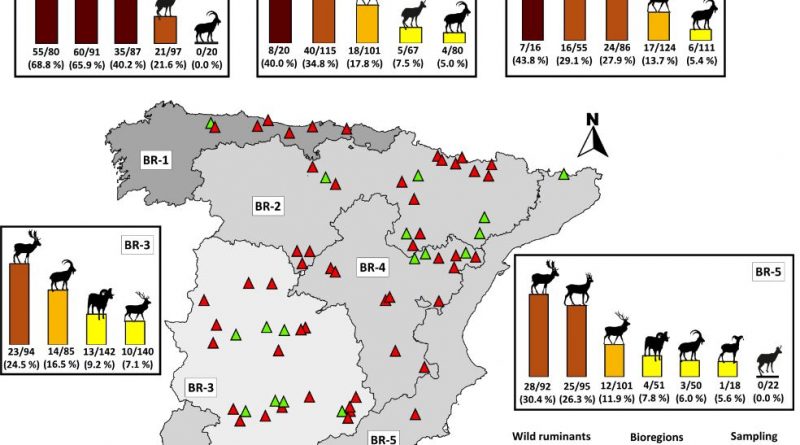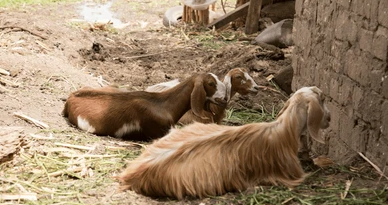Seroepidemiology of Toxoplasma gondii in wild ruminants in Spain
Toxoplasmosis is a parasitic zoonosis caused by Toxoplasma gondii which infects warm-blooded species worldwide. Humans can be infected through ingestion of tissue cysts from raw or undercooked meat, including game meat. A nationwide large-scale cross-sectional study was conducted to assess exposure to T. gondii in seven wild ruminant species in Spain. A total of 2,040 serum samples from 77 sampling sites randomly distributed in the five bioregions (BRs) covering mainland Spain were tested for antibodies against T. gondii using the modified agglutination test. The overall seroprevalence was 22.0% (449/2,040). Seroprevalence by species in decreasing order was as follows: 39.6% (141/356) in roe deer (Capreolus capreolus), 37.1% (138/372) in fallow deer (Dama dama), 16.6% (92/553) in red deer (Cervus elaphus), 14.0% (26/186) in Southern chamois (Rupicapra pyrenaica), 11.5% (24/209) in mouflon (Ovis aries musimon), 7.8% (27/346) in Iberian wild goat (Capra pyrenaica) and 5.6% (1/18) in Barbary sheep (Ammotragus lervia). Seropositivity was detected in 74.0% (57/77) of the sampling sites. Results indicate widespread but not homogeneous exposure to T. gondii in wild ruminant populations in Spain during the last two decades and highlight differences related to animal species and spatial distribution of these species in this country; this implies potential consequences of T. gondii for animal health, conservation and public health.




